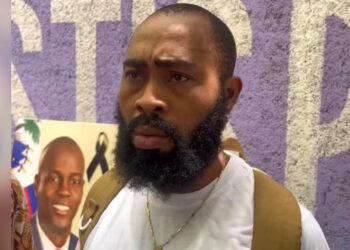On October 16, 2004, in front of 34,000 spectators at the Espanyol-Barça derby, the young Messi, then aged 17 years 3 months and 22 days, made his debut in the 82nd minute. It was the beginning of a king. Against all odds, on August 5, 17 years later, La Pulga bid farewell to the Culers.
Lionel Andrés Messi Cuccitini, the man with six gold balls, was born on June 24, 1987 in Rosario, a working-class town in northeast Argentina. La Pulga had a difficult childhood with a hormonal deficiency, as endocrinologist Diego Schwartzstein explained in December 1996. For a working-class family like Messi’s, it was difficult to carry out a thirty-month course of injections of (Levothyroxine, Norditropine), at a cost of $1,000 a month. Despite River Plate and Boca’s interest in the nugget, they were reluctant to pay for the treatment. Thanks to Josep Maria Minguella, Léo and his family were able to make contact with FC Barcelona for treatment support at the end of the 90s.
Messi and La Massia, the meeting of two M!
Newell’s Old Boys is the name of the club where Messi began his footballing career. He left it in July 2000, with his father, to go to Barcelona to take a test with FC Barcelona. In the presence of Josep Maria Minguella, Carles Rexach and Barça technical boss Horacio Gaggioli, an agreement was reached between his camp and the club, despite the uncertain legal validity of the deal for a minor player.
In March 2001, after several months of negotiations, Leo becomes a Barça player. The Blaugrana club pays for the player’s medical expenses and training, as well as the family’s move to Catalonia. Leo’s father, Jorge Messi, is also employed by the club.
Under Xavier Llorens, on March 7, 2001, La Pulga made his debut for the Infantil B in the Barça shirt at Amposta, where he scored a goal. Injury, litigation, between 2001 and February 2002 he spent six months away from the green rectangle.
In Juvenil A, alongside Cesc Fàbregas and Gérard Piqué, under Tito Vilanova, he scored 21 goals in 14 appearances. On November 16, 2003, at the age of 16 and 145 days, he was invited to take part in the first team’s friendly against FC Porto, to mark the inauguration of the Dragon Stadium. On January 4, 2004, at the Gramenet ground, Messi scored his first hat-trick and received a standing ovation from the home fans.
Leo Messi in the professional field!
On February 4, 2004, La Pulga signed his first pro contract, playing alongside the magician Ronaldinho (his mentor) and Deco. He made his Spanish league debut on October 16 against Espanyol Barcelona. On December 7, 2004, Léo played his first Champions League match against Ukrainian club Shakhtar Donetsk.
At the age of 17 and 310 days, the Rosario native scored his first league goal against Albacete Balompié on May 1, 2005, becoming the youngest goalscorer in the club’s history. Messi and Barça emerged victorious at the expense of their eternal rivals Real Madrid.
Leo Messi in the post-modern revolution of Barcelona-Guardiola’s integral beauty!
A team made up of Xavi, Iniesta, Busquets, Puyol, Piqué, Villa, Pedro etc. between 2009-2012 under Josep Guardiola, probably the best team in history at club level. Leo Messi as a winger with the aim of penetrating deep into the field in a 4-2-3-1 formation, where he won his first ball at the expense of his eternal rival Cristiano Ronaldo.
In the final tally, Messi and Barcelona are a marriage of 35 titles.
Liga (10):- Champion in 2005, 2006, 2009, 2010, 2011, 2013, 2015, 2016, 2018, 2019
Runner-up in 2007, 2012, 2014, 2017, 2020.
King’s Cup (7):
Winner in 2009, 2012, 2015, 2016, 2017, 2018, 2021
Finalist in 2011, 2014 and 2019.
Spanish Supercup (8):
Winner in 2005, 2006, 2009, 2010, 2011, 2013, 2016, 2018
Finalist in 2012, 2015, 2017, 2021.
Champions League (4):
Winner in 2006, 2009, 2011, 2015.
UEFA Supercup (3):
Winner in 2009, 2011, 2015.
Club World Cup (3) :
Winner in 2009, 2011, 2015.
On a personal level, Messi’s Barça career boasts more than 50 records: Barcelona’s all-time top scorer in official matches with 507 goals, Barcelona’s all-time top scorer including official matches and friendlies with 539 goals. He is Barcelona’s all-time top scorer in La Liga with 286 goals, Ballon d’Or winner on six occasions from 2009 to 2012, in 2015 and in 2019, the most prestigious individual trophy awarded to the world’s best player. Winner of the European Golden Shoe in 2010, 2012 and 2013 for his 34, 50 and 46 goals in La Liga, he has been honored several times in his home league. He won the LFP award for best player and best striker in La Liga five times in a row. Along with Ronaldo, he is the only player ever to be named World Player of the Year three times, in 2009, 2011 and 2012 by World Soccer.
Messi’s figures at Barcelona are so numerous and vast as is his talent, one article is so little to do the counting. We can’t wait to find out Messi’s next destination. Will Messi’s nº 10 be removed? to the affection of his beloved club? Will the project to replace the name of the Camp Nou stadium with Messi be successful?





Discussion about this post